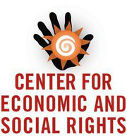Social Watch E-Newsletter - Issue 249 - March 11, 2016
Published on Fri, 2016-03-11 12:26
 |
| Issue 249 - March 11, 2016 |
|
|
|
| |
| |
|
| |
Obstacles to Women’s Rights and to the SDGs |
| |
|
| |
During the United Nations observance of International Women’s Day 2016, Barbara Adams from Global Policy Forum and Social Watch addresses the obstacles to Women’s Rights: the unfair global trade and investment system and the lack of a debt workout mechanism deviate the resources that should ensure an universal social protection floor. See the video here |
| |
|
| |
|
| |
The Iraqi Women Network statement on International Women's Day |
| |
|
| |
Iraqi women celebrate March 8 while they are either internally displaced, refugees, abducted, or as slaves and victims of sexual and physical and community violence, with extreme deterioration of their rights.
The weakness of the State and the escalation of the armed conflict among multiple groups, with the resurgence of violent extremism and terrorism through Daesh (ISIS), corruption and religious and political sectarianism are among the multiple challenges faced by Iraqi women. Read more
|
| |
|
| |
|
| |
Canada: The Unequal Economics of Women’s Work |
| |
|
| |
The study Making Women Count. The Unequal Economics of Women's Work, looks at how women in Canada and around the world are affected by rising inequality, including the burden of unpaid work, the undervaluing of work in predominantly female fields, and the unspoken social norms that see men offered higher wages and rates of promotion than women. Women make up some of the poorest and lowest paid workers in the global economy. And, as the report shows, women are doing more and more work to grow countries' economies without seeing equal benefits. The study offers a number of solutions to help make women count, including a shift towards policies that support better wages and access to employment for women, better financial support of public services - like health and child care – to reduce the care burden on women, and a greater focus by governments to prioritize women's rights. Read more |
| |
|
| |
|
| |
 |
This week, the UN Statistical Commission convenes for its annual meeting in New York. At the top of its agenda will be the latest report of the Inter-Agency and Expert Group on Sustainable Development Goal Indicators (IAEG-SDGs), which presents a final proposal for global indicators to monitor the SDGs. In the run-up to the Commission, various civil society groups have expressed their concern about particular indicators or missing indicators, as well as the opaque decision-making process.
The Center for Economic and Social Rights (CESR) is particularly concerned that SDG 10 (‘Reduce inequality within and between countries’) does not include a robust measure of economic inequality, and as such this indicator set is woefully incomplete. Economic inequality is a particularly pervasive and cross-cutting form of inequality that is a pressing issue in all countries, negatively impacting human rights enjoyment as well as poverty reduction and growth. Moreover, good methodologies to measure economic inequality already exist, which can easily be applied globally.Read more
|
|
| |
|
| |
|
| |
 |
Financiers can have significant influence over the operations of multinational companies and their role needs to be the subject of greater interrogation, in theory, policy and practice. Financial institutions are the less visible players in the work of corporations. This is probably why, in the international business and human rights debate, there is little focus on the role of financial institutions. But the lack of focus remains strange given the indispensable and powerful role played by those who finance the operations of corporations. Part of the reason for this, as Dowell-Jones and Kinley point out, is that human rights lawyers and actors are not au fait with financial doctrine and language. In order to address the role – both positive and negative – of financial institutions, we need to remedy the inability to understand financial language. This was part of the motivation behind the Wits University Round Tables in 2011 which brought together bankers, activists and academics. Read more
|
|
| |
|
|
|
| |
|
SOCIAL WATCH IS AN INTERNATIONAL NGO WATCHDOG NETWORK MONITORING POVERTY ERADICATION AND GENDER EQUALITY Social Watch >>
Social Watch E-Newsletter For comments, sugestions, collaborations contact us at: socwatch@socialwatch.orgTo stop receiving this newsletter send a message with the subject "unsubscribe" to: socwatch@socialwatch.org |
|
|
|
|
